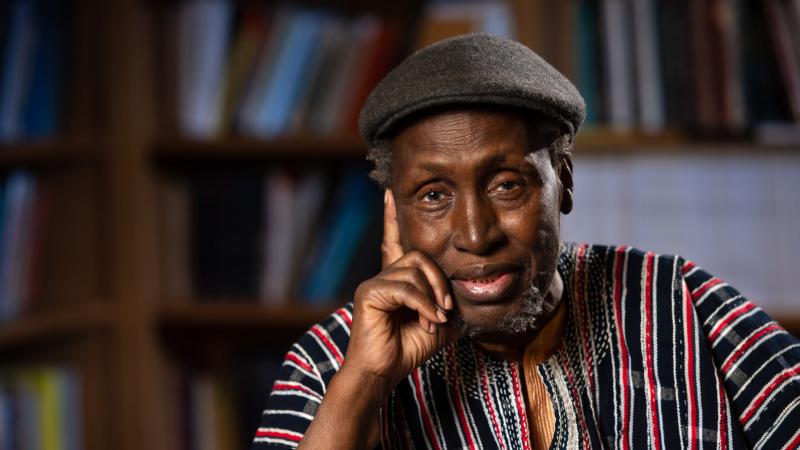Celebrated Kenyan author, playwright, and academic Ngũgĩ wa Thiong’o has passed away at the age of 87, his family confirmed in a heartfelt statement issued on Wednesday, 28th May 2025.
In a moving tribute shared by his daughter, Wanjiku wa Ngugi, the family described him as a man who “lived a full life” and “fought a good fight.” She wrote:
“It is with a heavy heart that we announce the passing of our dad, Ngũgĩ wa Thiong’o, this Wednesday morning, 28th May 2025. He lived a full life, fought a good fight. As was his last wish, let’s celebrate his life and his work. Rîa ratha na rîa thûa. Tûrî aira!”
Tributes continue to pour from around the globe following the author’s death. Homa Bay Governor Gladys Wanga mourned Thiongó through a message she posted on X saying ”Sad to learn of the passing on of a literary giant whose words shaped African thought and inspired generations. Prof. Ngũgĩ wa Thiong’o’s works challenged oppression and celebrated the power of indigenous voices with courage, globally advocating for African languages.” she stated.
Another X user by the name Peter Gathunuku said ”Kenya and indeed Africa can never thank you enough for all your work. My first encounter was the classic Ngahīka Ndēenda. RIP Ngugi wa Thiongo.”
An Organization by the name Kongamano la Mapinduzi stated ”Through Prof. Ngugi wa Thiong’o words, he gave voice to the oppressed.”
Ngũgĩ, born in 1938 in Kamirithu, Kiambu, rose from modest beginnings to become a literary giant, penning works that challenged colonialism, championed African languages, and redefined post-colonial African literature. His groundbreaking novels, including Weep Not, Child, The River Between, Petals of Blood, and Devil on the Cross cemented his place in the global literary canon.
Beyond writing, Ngũgĩ was a fearless political thinker. He endured arrest, exile, and censorship for his unapologetic stance on African self-determination and cultural identity. His decision to stop writing in English and instead embrace his native Gikuyu language was a revolutionary act that redefined literary discourse across the continent.
A long-serving professor at several global universities, including Yale and the University of California, Irvine, Ngũgĩ remained intellectually active well into his later years. He authored dozens of works, including novels, plays, essays, and memoirs.









